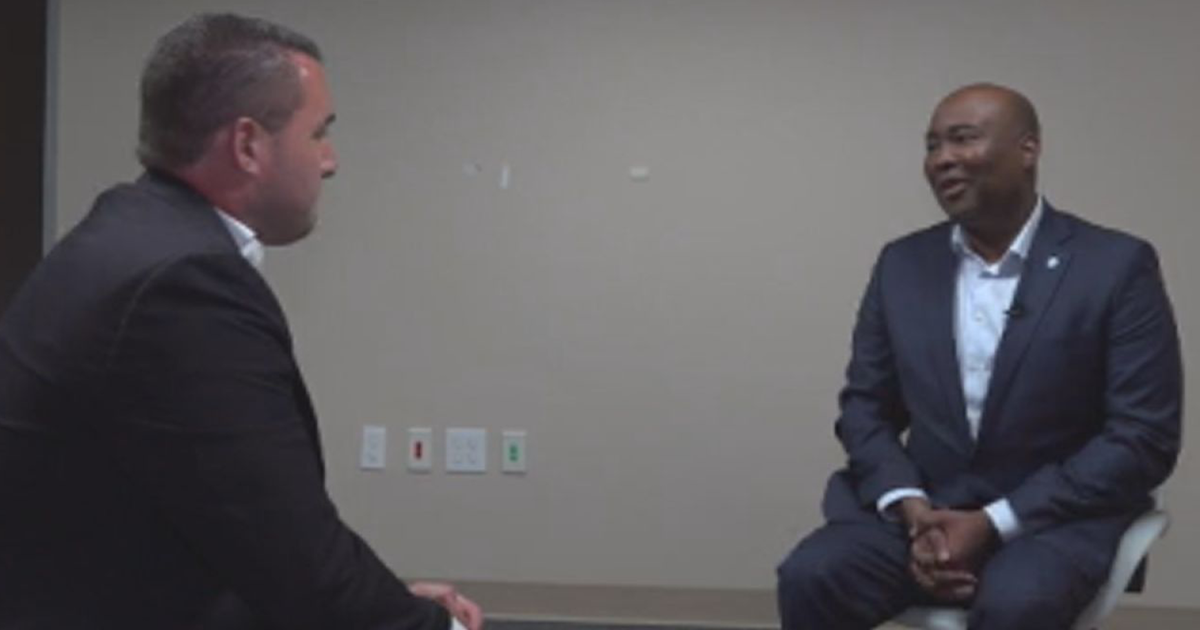Democratic National Committee Chair Jaime Harrison is feeling positive about the Democratic Party’s chances in Florida, despite the state leaning towards Republicans in recent presidential elections. In an exclusive interview with CBS News Miami, Harrison expressed his optimism, stating, “Florida is in play.”
Harrison highlighted the significant progress the Democratic Party has made in the state, noting that for the first time in 30 years, Democrats are running in every seat in the state House, state Senate, and at the congressional level. This widespread representation indicates a strong Democratic presence in Florida and signals a competitive political landscape.
Miami-Dade and Broward counties, traditionally Democratic strongholds, supported President Biden in the 2020 election. However, the overall state vote went to former President Donald Trump by a narrow margin. With approximately 5.38 million registered Republicans, 4.35 million registered Democrats, and 3.54 million unaffiliated voters, Florida’s political landscape is diverse and dynamic.
Harrison acknowledged the challenges faced by Democrats in the 2020 election, particularly due to the COVID-19 pandemic. The inability to conduct a robust field operation, including door-to-door outreach and voter communication, hindered the party’s efforts to mobilize supporters effectively.
In the upcoming elections, Democrat Lucia Baez-Geller is challenging Republican Rep. Maria Elvira Salazar in the House, while former Democratic Rep. Debbie Mucarsel-Powell is aiming to unseat Republican Sen. Rick Scott. Despite being outspent in advertising by Republicans, Harrison remains confident in the Democratic Party’s ability to rally support and secure necessary resources for the campaign.
Following an apparent assassination attempt on former President Trump in West Palm Beach, Harrison emphasized the importance of toning down political rhetoric and promoting a peaceful campaign environment. He called for an end to threats and violence against political figures, highlighting the need for civility and respect in political discourse.
In response to Harrison’s comments, Florida Republican Party Chair Evan Power asserted the Republican Party’s dominance in the state, citing superior voter registration, fundraising, and campaign efforts. Power dismissed the notion of Florida being a battleground state for Democrats, emphasizing the historical trend of Republican victories in the state.
The last time Florida voted for a Democratic presidential candidate was in 2012 when President Obama secured a narrow victory. Despite this, Harrison remains hopeful about the Democratic Party’s prospects in Florida, pointing to the evolving political landscape and growing party presence in the state.
As the election season unfolds, both parties are gearing up for a competitive race in Florida, with key races and initiatives shaping the political landscape. The outcome of these elections will not only impact Florida but also have broader implications for national politics and the balance of power in Washington.
In conclusion, the political dynamics in Florida are complex and evolving, with both parties vying for support and mobilizing their bases ahead of crucial elections. The competition is fierce, and the stakes are high as Democrats and Republicans navigate the diverse and dynamic political landscape in the Sunshine State.









